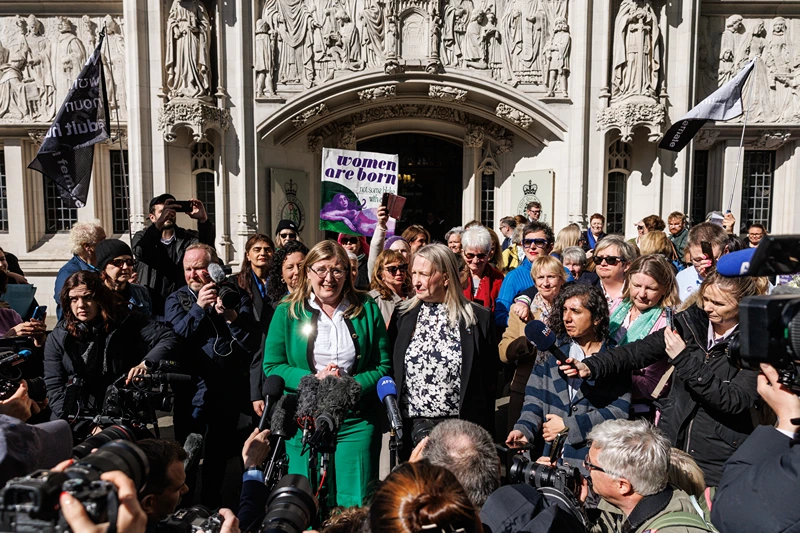
OAN Staff Blake Wolf
1:25 PM – Wednesday, April 16, 2025
In a decisive affirmation of legal clarity, the United Kingdom’s Supreme Court unanimously ruled on Wednesday that biological males who identify as transgender women will not be legally recognized as women under the Equality Act.
Advertisement
The five judges in the Court ruled that the term “woman,” under Great Britain’s 2010 Equality Act, refers to “a biological woman and biological sex.”
The landmark ruling stems from a legal battle, dating back to 2018, in which the judges argued that the “concept of sex is binary, a person is either a woman or a man.”
The case involved a 2018 Scottish Parliament law that was passed. It stated that women should make up at least 50% of representatives on Scottish public boards, though it was challenged after Scottish officials later revealed that the female representatives could also include men who identify as transgender women.
A women’s rights group, For Women Scotland (FWS), challenged the ruling of allowing men identifying as women to fill the female representative quota.
“Our position is your sex, whether you are a man or a woman or a girl or a boy, is determined from conception in utero, even before one’s birth, by one’s body,” stated FWS attorney Aidan O’Neill. “It is an expression of one’s bodily reality. It is an immutable biological state.”
“Not tying the definition of sex to its ordinary meaning means that public boards could conceivably comprise 50% men, and 50% men with certificates, yet still lawfully meet the targets for female representation,” stated the director of the organization, Trina Budge, at the time.
“The unanimous decision of this court is that the terms ‘woman’ and ‘sex’… refer to a biological woman and biological sex,” stated Judge Patrick Hodge on Wednesday.
The court went on to declare that the ruling “does not remove protection from trans people,” as they are “protected from discrimination on the ground of gender reassignment.” However, a biological male identifying as female should not be considered a woman — for the purpose of equality.
Nevertheless, the ruling was condemned by the LGBTQ community and transgender rights activists, while the For Women Scotland supporters cheered inside the courtroom, following the verdict.
“This has been a really, really long road,” stated Susan Smith, the co-founder of FWS. “Sex is real, and women can now feel safe that services and spaces designated for women are for women – and we are enormously grateful to the Supreme Court for this ruling.”
Stay informed! Receive breaking news blasts directly to your inbox for free. Subscribe here. https://www.oann.com/alerts
Advertisements below




